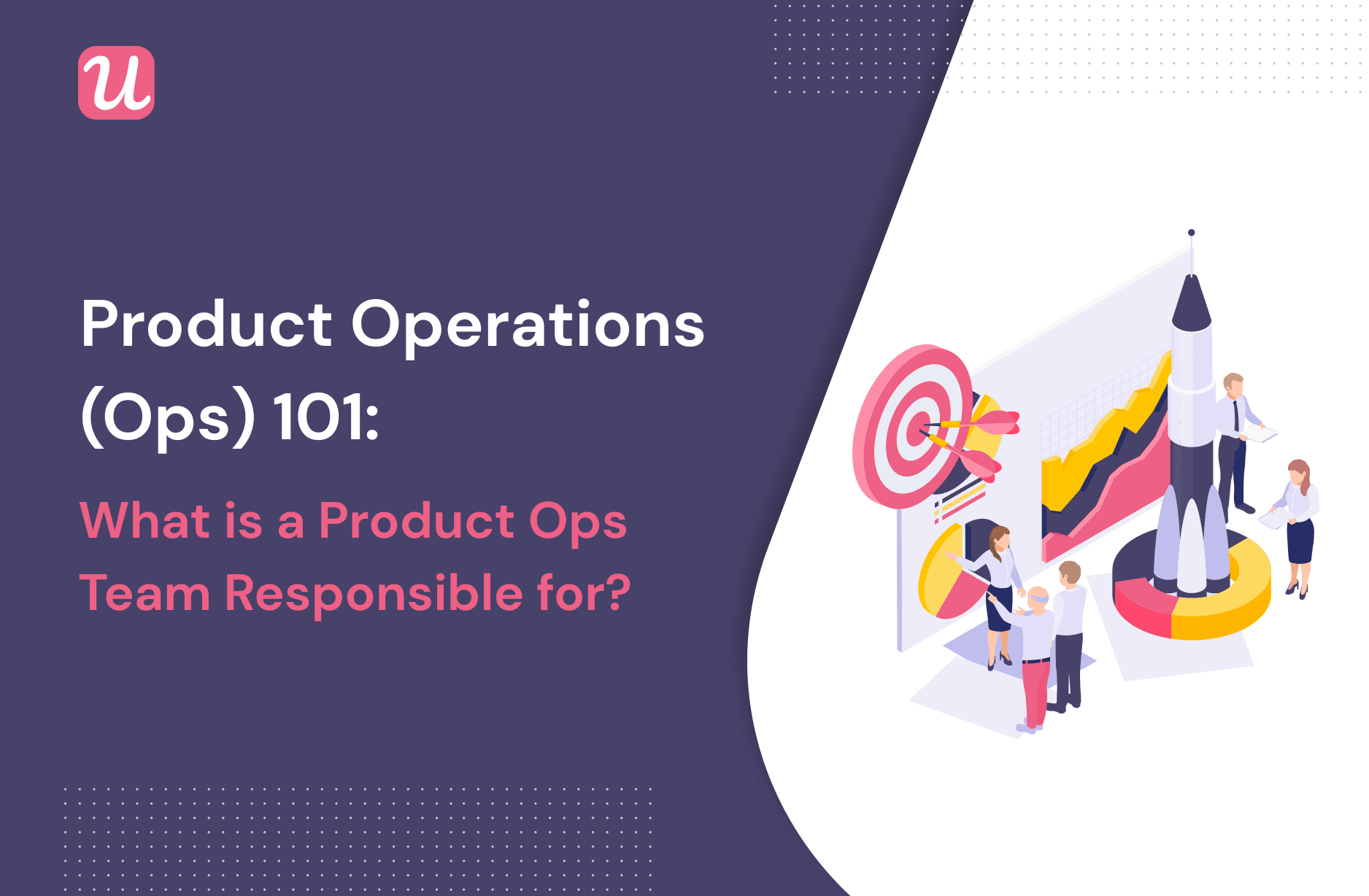
Product Operations (Ops) 101: What is a Product Ops Team Responsible For?
Try Userpilot Now
See Why 1,000+ Teams Choose Userpilot

What is product operations (ops)?
Product operations in short product ops is an operational role designed to support cross-functional product teams.
Product ops managers maintain and streamline the communication channels between the product, engineering, and user-facing teams.
They act as a conductor that enables the flow of information between different organizational cells involved in the product development process.
Product operations vs product management
The main difference between product management and product operations is the focus.
The focus of the product management team is external, concentrating on developing a product that solves the problems and meets the needs of the user.
In comparison, the product operations manager focuses on internal processes and solving the problems of the internal stakeholders. This means making sure the product management team has everything they need and facilitating a smooth process.
How does this look in practice?
Here are a few examples that showcase how a product manager’s job is different compared to a product ops manager:
- a product manager need data to make informed decisions: the product ops managers collect and analyze user feedback to facilitate the process
- it’s a product manager’s role to continuously optimize the product: product ops manages help with testing ideas and experimentation
- the product manager sets the vision and plans the product roadmap: the product ops manager manages the product tech stack, builds documentation to support the PM role
We’ll go over the product ops responsibilities in more detail in a bit.
Why is product operations important?
Product operations teams play an important role in product-led organizations. This is particularly true for large businesses, with more than one product in development, and many teams involved.
Product operations are like the connective links of organizations. They enable communication between the product development teams and the user-facing ones such as support, sales, or customer success teams.
Usually, where there’s a product ops team, there’s probably a sales ops and marketing ops one in charge of making the job of sales and marketing frictionless.
Thanks to product ops, the teams have access to the right data which they can use to inform the decisions on product development, marketing, and sales strategies.
Product operations also ensure that they all use the same processes, tools, and documentation, aligning the entire company and making it more productive.
Product ops responsibilities. What does a product operations manager do?
Product operations managers are responsible for a number of processes:
- managing the product tech stack
- automating and streamlining routine tasks and processes
- helping with product experimentation processes
- maintaining templates, guidelines, and resources up to date
- informing business decisions

Let’s have a look at them in a bit more detail.
Manage the product tech stack
One important role of the product operations team is the selection of the right tools for their organization.
There is plenty of product development and management tools available out there and choosing the right ones is important for the team’s productivity.
For example, having too many tools that don’t communicate with each other will lead to making misinformed decisions due to a lack of integrated data.
Not to mention delays in the development processes, or lost information.
Also, using too many tools that do the same thing is neither effective nor cost-efficient.
Product ops need to ensure that:
- Selected tools get the job done
- They can be integrated with each other
- There is no unnecessary duplication of tools with similar functionalities to eliminate inefficiencies
The responsibility of product operations is also making sure that the teams have the right skills to use the tools effectively. That’s why they are often involved in developing guidelines and delivering training.
Automate and streamline routine tasks and processes
With many routine tasks and processes that product teams need to deal with on a regular basis, it’s easy to lose track of tasks and become unproductive.
Bug triaging, tracking product health, publishing user issue reports, or implementing quality alerts are just a few examples of what’s keeping product managers from shipping products faster.
Product operations are responsible for finding the most efficient ways of dealing with such tasks to take the load off the product teams and let them concentrate on their work.
Maintain templates, guidelines and keep resources up to date
Developing, storing, and curating resources such as templates or guidelines is another product ops function.
Document templates, e.g. used for reports such as release notes, allow teams to save time and communicate all the necessary information in a consistent manner.
Teams also need up-to-date product specifications, guidelines, and manuals to stay on the same page.
For example, the marketing and sales teams need to be aware of the most recent changes in the product. Having access to knowledge generated by other teams in the past allows learning from previous experiences and avoiding past mistakes.
Product ops teams make sure that such resources are up to the job, usable, and easily available.
Help with product experimentation process
Experimentation is one way to obtain data to inform product and organizational growth. The bigger the organization, the more complex the testing protocols are.
Things could get even more complicated if there are more product managers involved, each of them bringing their own expectations and approach to testing and experiments.
The job of product ops is to devise and streamline the experimentation processes so that they consistently generate actionable and reliable data.
Inform business decisions
Product operations teams play an important role in the collection, curation, analysis, and dissemination of data needed for making informed business decisions.
Product operations collect the product data from across the entire organization and use the right analytics tools to identify relevant patterns and trends.
These are then shared with the product managers who can use them to guide the product development process and prioritize the development of certain features over others.
Because they often have a better understanding of data and its significance than other teams, product ops ensure that everyone has the right information they need to guide their work.
Why does a company need a product operations team?
Developing and maintaining documentation, collecting and analyzing data are all activities that require considerable effort, resources and are time-consuming.
Product ops manage all those tasks and free up the time and energy of the other product teams which they can spend doing their jobs.
As there is one dedicated team responsible for all those processes, product operations also improve the consistency and efficiency across the organization and communication between different teams.
Whether your company needs a product operations team depends greatly on the size, scope, and complexity of your operations.
If you are a large business or expecting to grow, product operations will definitely be worth the investment.
How Userpilot can help the product operations team
As mentioned above, one of the main responsibilities of a product ops manager is managing the tools stack.
A well-optimized tech stack should consist of tools that integrate with each other, have a short learning path, are easy to maintain and use by multiple teams, and help them focus on their specific goals.
Here are a few ways in which Userpilot can help product ops teams solve some of the problems and challenges they face.
Automate feedback collection
Userpilot allows you to easily collect and analyze user feedback from inside the app.
You can collect in-depth feedback on features and the product experience in general by using NPS analytics and in-app micro surveys.

Additionally, with mobile capabilities, you can trigger NPS surveys directly on mobile, effortlessly gathering valuable user insights on-the-go.
Note that once you create your surveys and there’s no need to redesign or re-code them if you want to introduce some tweaks. With Userpilot, all surveys are built without coding, are can be updated any time with almost zero effort.
Using product usage analytics you can segment your users, making sure your in-app surveys reach the right user segment.
You wouldn’t want to ask someone who hasn’t used a feature to tell you how they found the experience, would you?

Facilitate product adoption experimentation
Experiments take away a lot of the guesswork from product design and allow product management teams to understand what’s bringing value to the product and prioritize the roadmap based on real insights.
Product ops managers can remove friction from the product experimentation process by using Userpilot to quickly implement experiments on user experience, feedback collection, and in-app engagement focused on product usage and adoption goals.

With goals set up, you can A/B test in-app experience flows to see which drives the best results towards goal completion.

Get product usage data in one place with integrations
Userpilot is a product growth and adoption tool that integrates with the stack that you are already using.
There is a range of integrations with product analytics tools available (such as Segment, Mixpanel, or Heap) and there are more in the pipeline (Hubspot, Slack and Zapier coming soon).

Conclusion
Product operations play an important supportive role for product teams. Their main roles include:
- enhancing communication between teams,
- providing them with the right tools needed to complete their tasks,
- promoting good practices and enabling knowledge sharing between teams,
- designing and conducting product adoption experiments,
- collecting, analyzing, and sharing data to enable informed decision-making.
Many small Saas companies manage without dedicated product operations teams and their work is done by product managers. However, they are indispensable for organizations experiencing rapid growth, developing many products at the same time, and with projects of high complexity and a big scope.
Want to see how Userpilot can help your product ops team? Get a demo and see Userpilot in action.







